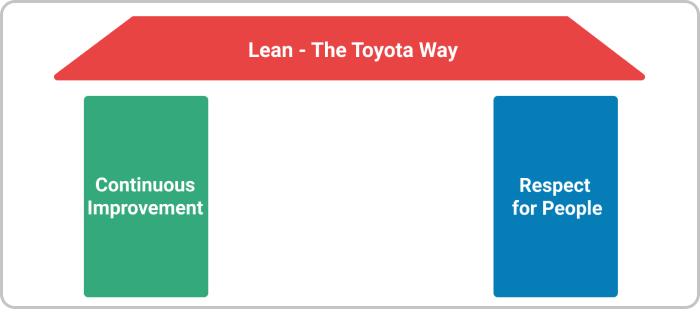Embarking on a Lean transformation journey requires more than just technical know-how; it demands a profound shift in leadership approach.
Echoing this sentiment, David Mann highlights, "The use of Lean tools and techniques represents only 20% of the effort required in implementing Lean with the other 80% relating to changing the mindset, culture, and soft skills of Lean leaders." (Mann, 2009, The Missing Link: Lean Leadership).
In this blog, we explore the indispensable role of Lean managers and why their influence is crucial in steering the cultural and mindset changes necessary for successful Lean implementation in management.
Understanding the Lean Manager
Lean managers are individuals who practice the management techniques of the Lean movement and embrace the Lean philosophy, focused on trust, transparency, and continuous improvement.
What Is the Lean Leader Role?
A Lean manager is a key facilitator of Lean principles within an organization. Their primary role is to streamline processes, eliminate waste, and ensure continuous improvement. They act as change agents, guiding and coaching employees through Lean transformations and fostering a culture of efficiency and waste minimization.
What Are the Lean Manager's Responsibilities?
Lean managers are responsible for analyzing current workflows, identifying inefficiencies, and implementing Lean strategies to improve productivity and quality. They work closely with teams to instill Lean thinking, provide training, and measure performance against Lean standards. Their impact is profound as they lead by example, promoting a sustainable Lean culture that drives the organization towards operational excellence.
Here are the key responsibilities of a Lean manager in short:
- Driving Process Improvement: Identify areas of inefficiency, waste, and bottlenecks in processes and work with teams to streamline and improve them.
- Identifying Waste: Identify and eliminate various types of waste, such as overproduction, waiting times, unnecessary transportation, excessive inventory, defects, and underutilized talent.
- Enabling Continuous Improvement: Foster a culture of continuous improvement by encouraging teams to seek out and implement small, incremental changes that lead to ongoing enhancements.
- Encouraging Team Collaboration: Work closely with cross-functional teams to identify improvement opportunities and help them implement lean tools and methodologies.
- Analyzing and Making Data-Driven Decisions: Use data and metrics to analyze performance, identify improvement opportunities, and track progress toward lean goals.
- Leading Training and Education Initiatives: Provide training and guidance to employees at all levels on lean principles, tools, and techniques to build a shared understanding and competency.
- Change Management: Help employees embrace change by addressing resistance, communicating the benefits of lean practices, and involving them in the improvement process.
- Analyzing the Value Delivery Processes: Analyze the end-to-end value stream to identify opportunities for improvement and prioritize efforts that deliver the most significant impact.
- Driving Customer Focus: Ensure that lean efforts align with customer needs and expectations, leading to improved product and service quality.
- Supporting Leadership: Collaborate with senior leadership to align lean initiatives with strategic goals and secure the necessary resources for implementation.
6 Lean Qualities of Successful Lean Managers
Embodying Lean qualities is essential for any manager aiming to succeed in the Lean management journey. These qualities are not just personality traits but are cultivated through conscious effort and dedication to the principles of Lean thinking. Here’s a closer look at the six Lean management skills and qualities that set apart successful Lean managers:
1. Authentic Leadership
A successful Lean manager embraces authenticity, understanding that genuine leadership is about being truthful and transparent. They recognize the importance of the Gemba Walk, engaging directly with the front lines to gain an accurate picture of operations. This authentic approach is crucial for uncovering real issues and driving effective problem-solving.
2. Curiosity Mindset
Curiosity is a hallmark of Lean leadership. Lean managers demonstrate an insatiable desire to learn and understand both processes and outcomes. By nurturing curiosity, they encourage their teams to develop autonomy and critical thinking, which are key for fostering an environment of continuous improvement and innovation.
3. Respectful Engagement
Respect is a cornerstone of Lean culture. Lean managers show respect by treating every individual with dignity, thereby creating an atmosphere where employees are motivated to learn, contribute, and excel. This respectful engagement is essential for building a collaborative and empowered workforce.
Lean leaders demonstrate respect not just by empowering subordinates but by devoting themselves to creating a work environment in which they can be successful. Respect is one of the pillars of Lean thinking, and when a leader models respect for everyone, it shows team members how to be respectful of each other.
4. Patient Improvement
Patience is vital in the Lean context, where the focus is on long-term growth and quality. Lean managers exercise patience by guiding rather than dictating, allowing the team to collectively address challenges and prioritize sustainable progress over quick fixes.
The Lean practice of “stopping the line” empowers everyone on the team to stop work to come together and solve a problem because a Lean team values quality over quantity. A Lean leader is focused on long-term goals: the long-term value for the customer, the long-term growth of their team, and the long-term outcome of present actions. It is not a role for an impatient person.
5. Continuous Striving for Perfection
Perfectionism in Lean is about the relentless pursuit of excellence and continuous improvement. Everything that is done well can be done better with more value being added and fewer non-value adding activities.
Lean managers are not content with the status quo; they constantly seek ways to enhance value and reduce waste, driving their teams toward ever-higher standards of performance.
6. Humility and Self-Reflection
Humility stands out as the most essential trait for a Lean manager, emphasizing the importance of self-reflection and recognizing personal limitations to cultivate an environment of trust and collective advancement. Such a manager prioritizes serving their team, encouraging their growth, and rejoicing in their successes.
It's crucial for Lean managers to embody modesty and embrace "hansei," or self-reflection. By contemplating their own shortcomings and vulnerabilities, they can genuinely accept them, paving the way for continual self-betterment.
The Lean Manager's Ultimate Behavior
These six Lean qualities combine to form the essence of a Lean manager who is dedicated to service, growth, and the continuous journey of improvement. Through a balance of mentorship, strategy, and humility, a Lean manager not only leads but also inspires their team to embody Lean principles and achieve collective success.
Approached with humility and a willingness to improve, the Lean leader should constantly seek to embody Lean principles and values, even when it means cultivating greater respect or humility. When they fail, they analyze their behavior honestly and correct it with patience. Lean management is bounded by innate personality traits because Lean is not a state, it is a journey.
Lean Manager's Role and Importance in Management FAQs
What Is a Lean Manager?
A Lean manager is a professional responsible for implementing Lean principles within an organization. They focus on streamlining processes, reducing waste, and driving continuous improvement to enhance efficiency and value.
What Are the Main Responsibilities of a Lean Manager?
The main responsibilities of a Lean manager include analyzing and improving workflow processes, training team members in Lean methodologies, fostering a culture of continuous improvement, and leading by example to maintain a Lean-focused mindset across the organization.
How Does a Lean Manager Measure Success?
A Lean manager measures success by tracking key performance indicators (Lean KPIs) related to process efficiency, waste reduction, and quality improvement. They also consider employee engagement, customer satisfaction, and the overall alignment of organizational activities with Lean principles.
Is Lean Management Applicable to All Industries?
Lean management principles are versatile and can be applied across various industries, including manufacturing, healthcare, finance, and services. The core concepts of waste reduction and process improvement are universal and can lead to significant benefits regardless of the industry.

Alex Novkov
Content Lead
Energetic and practical, passionate about social media, creative writing, heavy weights, and outdoor activities.




